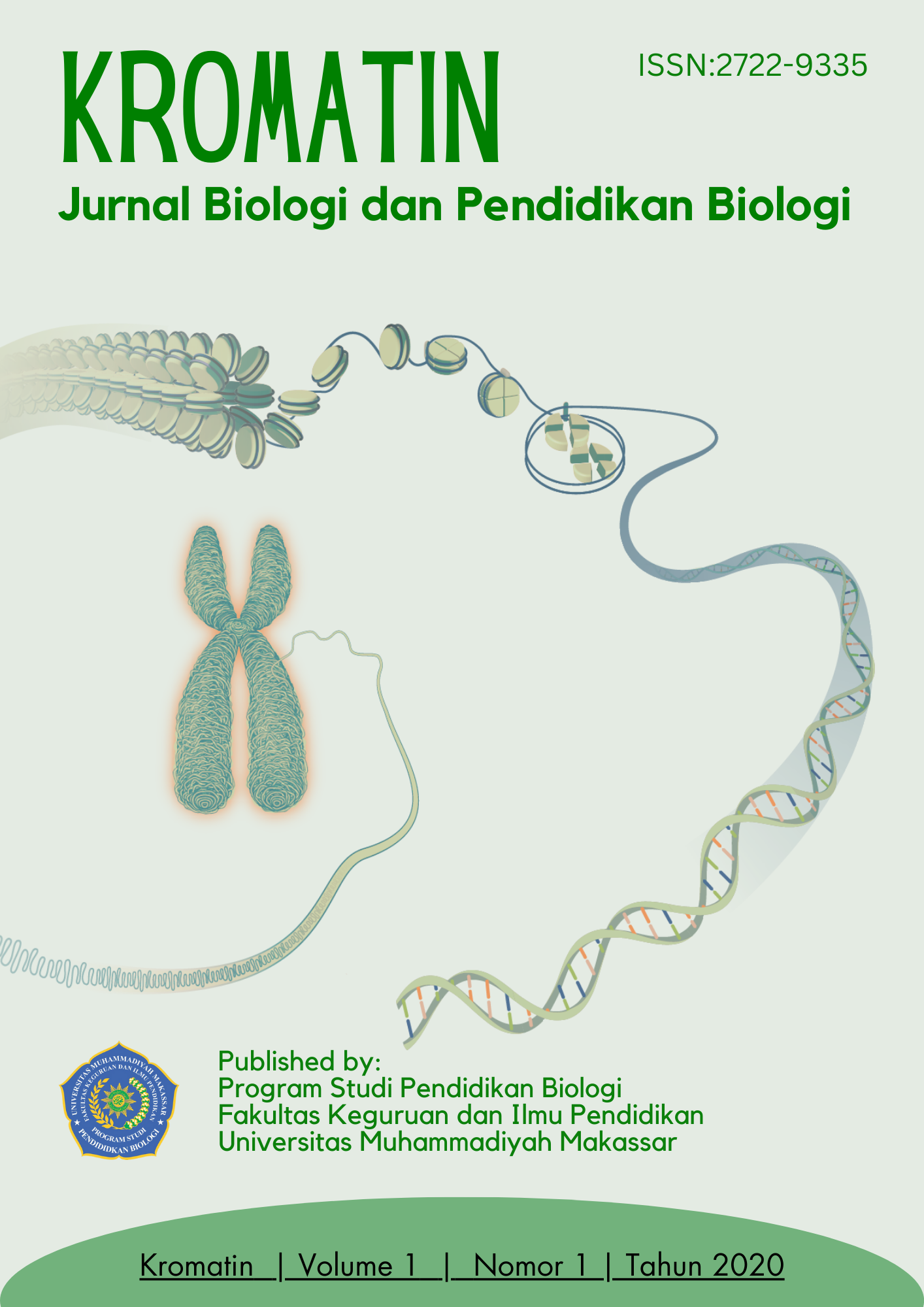Pengaruh budaya sekolah terhadap pembentukan karakter siswa
Abstract
This study aims to determine the effect of school culture on the formation of the character of class X majoring in Mathematics and Natural Sciences 2 Soppeng. This research is a Qorelational study. The population in this study the entire class X MIPA Soppeng State totaling 170 while the number of samples is 50% of the population of 70 students. Data collection techniques using observation, questionnaire and documentation using descriptive techniques in analyzing data. The results showed that there was a significant influence between school culture on the formation of the character of class X students of SMA Negeri 2 Soppeng. This can be seen from the results of data analysis conducted, with the calculated t value greater than t table with a significant level of less than 0.05. Keywords: School Culture, Character, StudentsReferences
Abdulah Munir. 2010 . Pendidikan Karakter Membangun Karakter Anak Sejak dari Rumah. Yogyakarta: PT. Pustaka Insan Madani.
Agus Setyo Raharjo.2013.Pengaruh Keteladanan Guru Dan Interaksi Teman Sebaya Terhadap Karakter Siswa. Jurnal FT.
Arikunto, 2013. Prosedur Penelitian. “Suatu Pendekatan praktis. Jakarta : PT.RINEKA CIPTA.
Akhmad Sudrajat. 2008. Pengertian Pendekatan, Strategi, Metode, Teknik dan Model Pembelajaran. Bandung : Sinar Baru Algensindo
Anwar.2017. Teknik Sampling dalam Penelitian. http/www.statistikian.com/2017/06/teknik-sampling-dalam-penelitian. (Diakses 06 januari 2020)
Balitbang. 2003 . Pedoman Pengembangan Kultur Sekolah. Jakarta: Direktorat Pendidikan Menengah Umum, Direktorat Pendidikan Dasar Menengah, Departemen Pendidikan Nasional
Daryanto. Tarno. 2015. Pengelolaan Budaya dan Iklim Sekolah. Yogyakarta: Gava Media
Djemari Mardapi. (2003). Pedoman Umum Pengembangan Sistem Penilaian hasil Belajar Berbasis Kompetensi Siswa Sekolah lanjutan Tingkat Pertama (SLTP). Yogyakarta: Pascasarjana UNY.
Haryanto (2011). Jurnal Ilmiah Pendidikan “Cakrawala Pendidikan “ :Pendidikan Karakter Menurut Ki Hajar Dewantara. Yogyakarta: Jurnal ISPI-LPM UNY. Edisi XXX Mei 2011 halaman 15 s.d 27
Haryanto (2011). Jurnal Ilmiah Pendidikan “Cakrawala Pendidikan “ :Pendidikan Karakter Menurut Ki Hajar Dewantara. Yogyakarta: Jurnal ISPI-LPM UNY. Edisi XXI Mei 2012 halaman 18 s.d 27
Koentjaraningrat.2002. Pengantar Ilmu Antropologi. Jakarta: PT Rineka Cipta.
Kulsum Umi. (2011). Implementasi Pendidikan Berbasis PAIKEM (Sebuah Paradigma baru Pendidikan di Indonesia). Surabaya: Gena Pratama Pustaka.
Kemendiknas.2010. Budaya Sekolah. Jakarta.
Kemendiknas. 2010. Panduan Penerapan Pendidikan Karakter. Jakarta: Pusat Kurikulum
Kemendiknas. 2011. Pedoman Pelaksanaan Pendidikan Karakter. Jakarta: Pusat Kurikulum dan Perbukuan.
Kementerian Pendidikan Nasional. 2010 . Pedoman Sekolah Pengembangan Pendidikan Budaya dan Karakter Bangsa. Jakarta.
Muntholib Abdul, dkk. 2018. Implementasi Pendidikan Karakter dalam Membentuk Sikap dan Perilaku Sosial Peserta Didik Melalui Pembelajaran Sejarah di SMA PGRI 1 Pati Tahun Pelajaran 2017/2018. Indonesian Journal of History Education. ISSN : 2252-6641. Vol 6 (1).
Nurul Zuriah. 2007. Pendidikan Moral & Budi Pekerti Dalam Perspektif Perubahan, Jakarta: Bumi Aksara.
Roucek dan Warren. 2005. Pengantar Sosiologi. Solo: Bina Aksara.
Rachmadiyanti Putir. 2017. Hubungan lingkungan dengan karakter siswa smk negeri kelompok teknologi se-kota Yogyakarta. Jurnal JPSD . ISSN : 2540-9093. Vol 3 (2).
Sugiyono. 2015. Metode Penelitian Pendidikan. Bandung: Alfabet
Sugiyono. 2013. Metode Penelitian Administrasi. Bandung: Alfabet
Sudijono. Anas. 2014. Pengantar Statistik Pendidikan. Cetakan ke-25. Jakarta: PT. Raja Grafindo Persada
Undang-Undang Republik Indonesia No. 20 Tahun 2003 Tentang Sistem Pendidikan Nasional. Jakarta: Eko Jaya.
Zamroni.2011. Pendidikan Demokrasi pada Masyarakat Multikultural. Yogyakarta: Gavin Kalam Utama.
Downloads
Published
Issue
Section
License
Authors who publish with this journal agree to the following terms:
1. Authors retain copyright and grant the journal right of first publication with the work simultaneously licensed under a Creative Commons Attribution 4.0 Internasional License that allows others to share the work with an acknowledgement of the work's authorship and initial publication in this journal.
2. Authors are able to enter into separate, additional contractual arrangements for the non-exclusive distribution of the journal's published version of the work (e.g., post it to an institutional repository or publish it in a book), with an acknowledgement of its initial publication in this journal.
3. Authors are permitted and encouraged to post their work online (e.g., in institutional repositories or on their website) prior to and during the submission process, as it can lead to productive exchanges, as well as earlier and greater citation of published work.
Licence:
Authors are free to:
1. Share: Copy and redistribute the material in any medium or format
2. Adapt: Remix, transform, and build upon the material for any purpose, even commercially.
The licensor cannot revoke these freedoms as long as the authors follow the license terms, which include the following:
1. Attribution: Authors must give appropriate credit, provide a link to the license, and indicate if changes were made. Authors may do so in any reasonable manner, but not in any way that suggests the licensor endorses the authors or authors’ use.
2. No additional restrictions: Authors may not apply legal terms or technological measures that legally restrict others from doing anything the license permits.
This work is licensed under a licensed under a Creative Commons Attribution 4.0 Internasional License/ CC BY 4.0.


